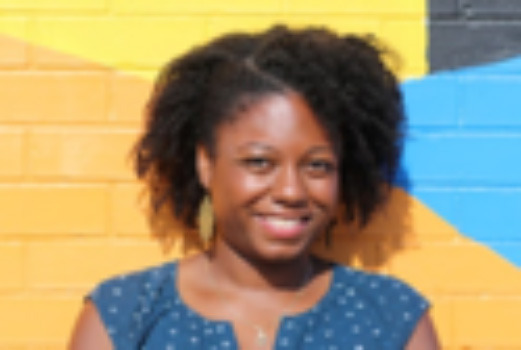Taking closer look at research and experiences of SSHD members
~Researcher’s Window~
This month we are getting better acquainted with the research of Barbara Thelamour, an Assistant Professor of Psychology at Swarthmore College.
1. What drew you to do work in human development?
Before I thought about it as a “research interest,” I often found myself thinking about Black immigrant young people and how they fit in the world as Black and relatively foreign. My foundation in educational psychology has focused my interest in the realm of schools, and human development has expanded my research through its multidisciplinary nature and emphasis on contextual factors. This field offers a lens for me to deeply engage with my research questions pertaining to immigration, culture, identity, and school outcomes. I am afforded a flexibility in my human development research that is rewarding to me.
2. Did you have any mentor or a researcher who had substantial influence in your path or work? Is there a significant moment or story that capsulizes the nature of that influence on your scholarship or professional journey?
There have been several mentors who have helped to shape my scholarship and professional journey. Since graduate school, Deborah Johnson has been the consummate mentor who has helped me to navigate my educational psychology and human development interests. Gail Ferguson’s tridimensional acculturation framework has been critical in my thinking about Black immigrant adjustment. Sue Chuang, through her On New Shores conference has helped me to see the practical implications of my research on immigration.
3. You have a range of important work, select 1-2 findings that you feel are key contributions to human development and describe those in brief. What might be the cultural, inclusion or global significance of your work?
I’ve been most engaged in research focusing on the ethnic diversity within the American Black population, most recently in college students. From our dataset of 345 Black college students attending school in the United States, we found that Black students have an affinity for friendships with their same ethnic peers (e.g., Caribbean students preferring friendships with other Caribbean students over African and African American peers). Those friendships were found to mediate the negative relationship between racial identity and campus connectedness, particularly in predominately white institutions. This research on college students can support institutions of higher education to recognize and support the increasing ethnic diversity on their campuses. Beyond colleges and universities, research taking immigration into account continues to push against the notion that Blackness as it exists in the U.S. as monolithic.
4. If you had just one wish for the study of human development, what would it be? How would it advance the field?
That human development continues to be outward facing in its emphasis on using our findings to educate the public and provide services to those who seek them. There are policy and law enforcement decisions that counter robust findings in human development and are actually endangering lives. I see our field as being a voice of reason and support beyond academia to create and sustain effective and, perhaps, life-saving change.
5. A mentoring statement or quote you find most meaningful or life-changing.
Not specific to mentoring, but has shaped my interactions nonetheless—
“I've learned that people will forget what you said, people will forget what you did, but people will never forget how you made them feel.” –Maya Angelou
About the researcher

Barbara Thelamour is an Assistant Professor of Psychology at Swarthmore College in Swarthmore, PA. Her research is grounded in human development and educational and multicultural areas of psychology. Her research in these related areas focuses on the identity development of Black immigrant adolescents and emerging adults, particularly in relation to Black American culture as the receiving culture. In the second line of research, the emphasis is on the interplay between identity and educational experiences and outcomes of immigrants and other students of color. Across these research endeavors, she has highlighted how relationships with others, particularly parents and peers, and school environments facilitate or hinder these identity, acculturation, and learning processes.
Edited and launched by Deborah J. Johnson & Yoko Yamamoto
SSHD Publicity Committee

